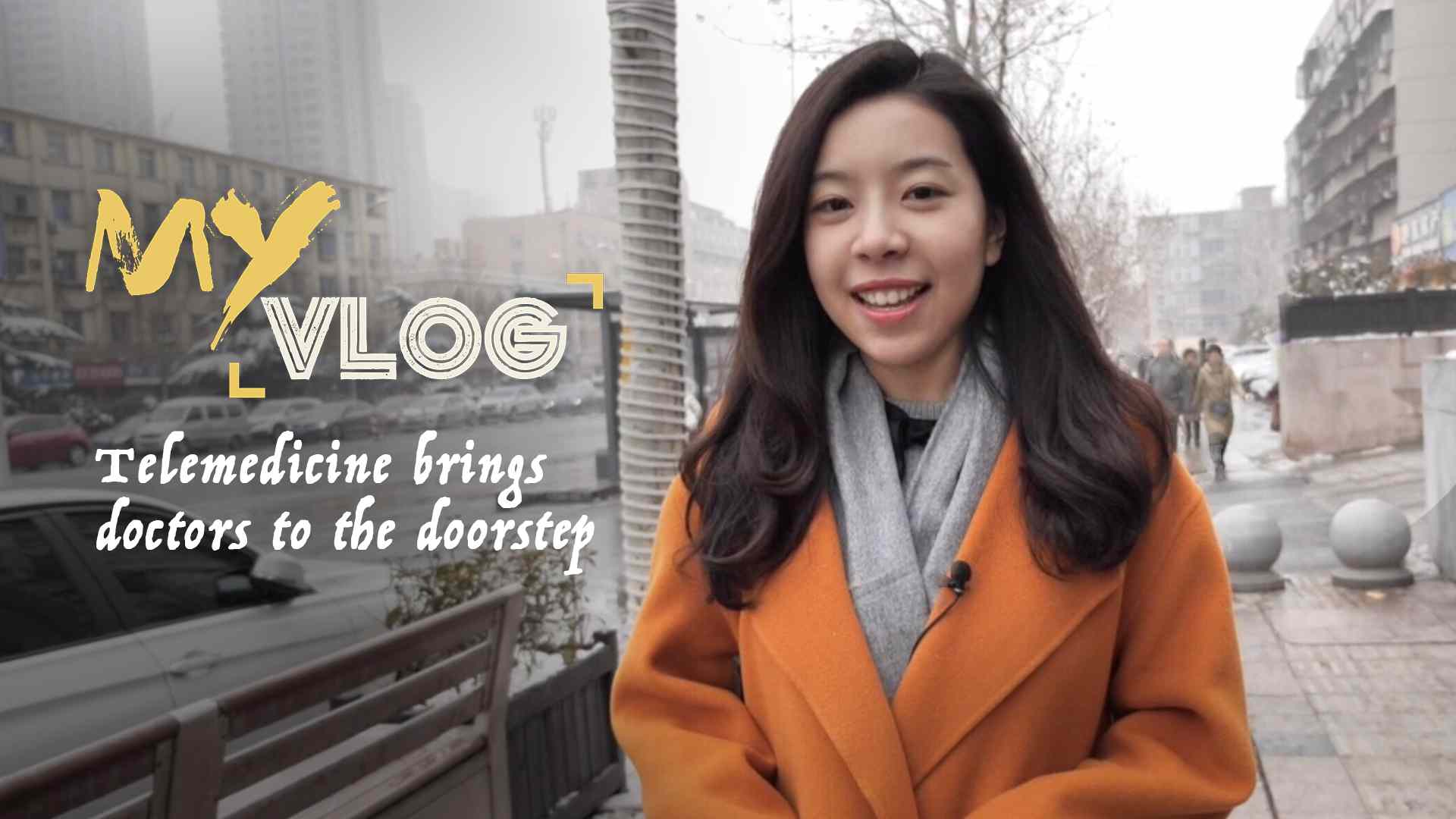
Domestic
14:27, 20-Mar-2019
My Vlog: Telemedicine brings doctors to the doorstep
Yang Xinmeng
05:41

China, with a land area of 9.6 million square kilometers, is home to nearly 1.4 billion people. Ensuring such a massive population spread over so large an area, not only survive but flourish, is no mean feat – and one requires a forward-thinking healthcare system.
To learn more about the country's medical reform, and discover the secrets behind the rapidly developing telemedicine, I went to Henan, the most populous province in central China, and met with a patient who's conducting a remote consultation with a Beijing doctor.
Yuan Guoxian, 73, was diagnosed with right renal pelvic cancer and bladder cancer five years ago. He visited nearly all the major hospitals in Zhengzhou, the provincial capital city, undergone a surgery, tried both western and Chinese traditional medicine, but his condition is not getting better. In his words, the dosage was too high for him. He lost all his hair, and his jaw was swollen. The treatment was “painful”.
Looking for help from doctors in the country's capital Beijing, Yuan and his family turned to the means of telemedicine. During the consultation, chief surgeon Du Peng at Beijing Cancer Hospital recommended Yuan to take a surgery, which he could perform. His words got Yuan much relieved.
By sharing medical resources, the geographic gap in China can be narrowed, Dr. Du said. “It is also a direction for our country's future medical reform.”
Moreover, in Henan, I came across another doctor connecting a remote village through video chat and discovered that instead of connecting the city dwellers to big metropolitans like Beijing and Shanghai, Zhengzhou, as a second-tier city, is also connecting with rural hospitals to help the villagers.
It is called a “remote clinic”. Unlike remote consultation, the clinic is mostly used for common disease diagnosis in remote areas with minimal medical resources.
For some, medical reforms might look complicated and out of reach, yet the aim is straightforward – to make hospital visits more accessible and more affordable. Telemedicine, according to Dr. Shang Zhixin from Beijing Cancer Hospital, is the solution.
“Telemedicine is the best model of hierarchical medical system, as well as medical treatment partnership,” Shang said. “With local preliminary diagnosis, remote consultation, and online referral, it also solves the problem of difficult and costly hospital visits.”

SITEMAP
Copyright © 2018 CGTN. Beijing ICP prepared NO.16065310-3
Copyright © 2018 CGTN. Beijing ICP prepared NO.16065310-3